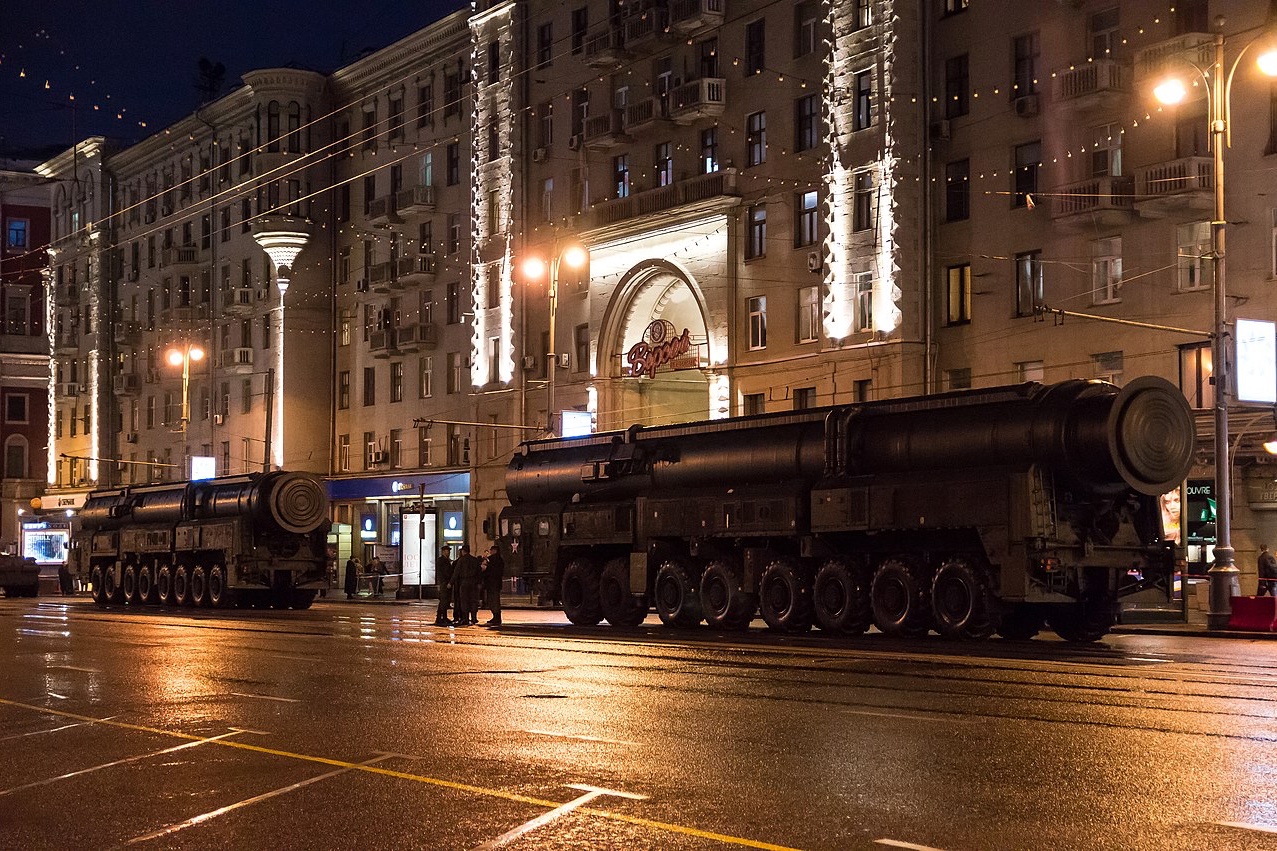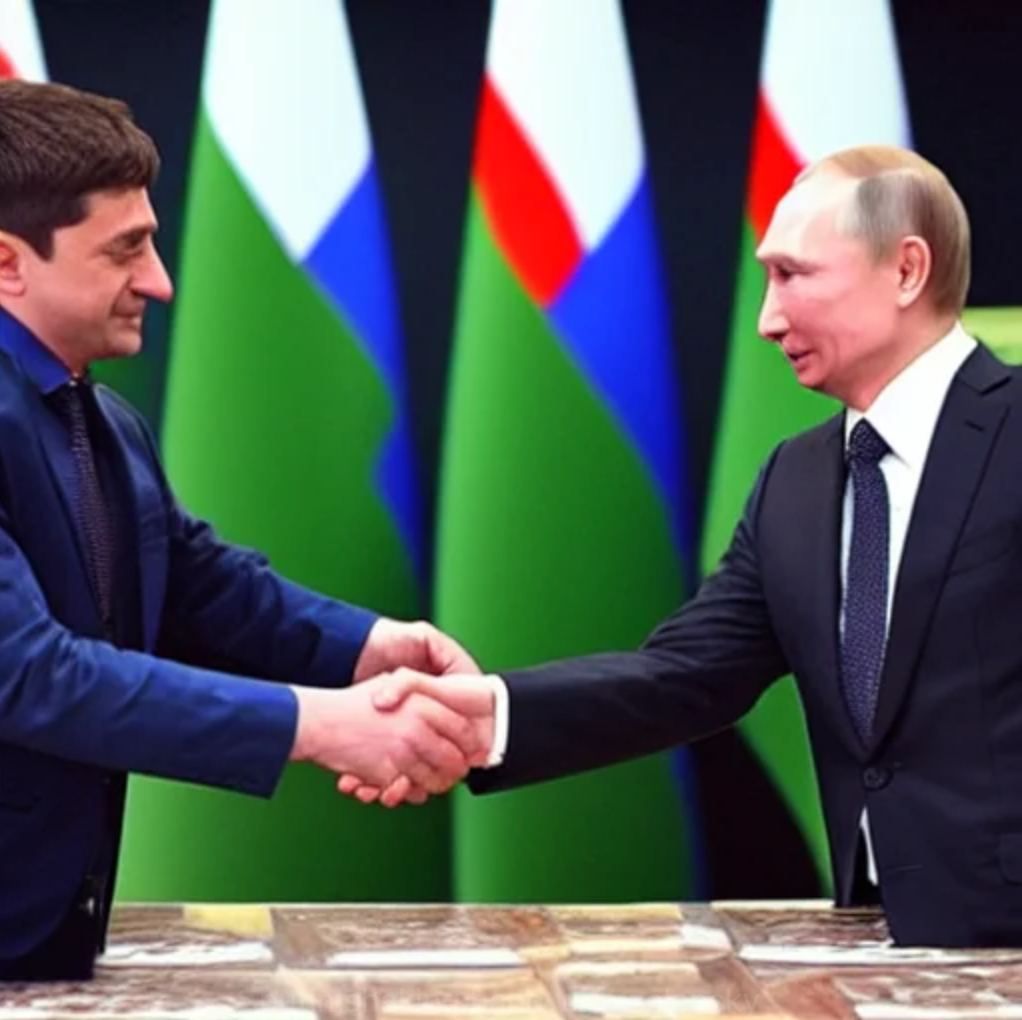* * *
As humans, we only have two choices to resolve conflict: violence, or conversation.
—Sam Harris
History comes down to people talking in rooms.
—Don DeLillo
* * *
The pickle we’re in
Before you go further, read this piece. It’s a mainstream analysis, written by a member of the US foreign policy establishment, who worked for the state department under Obama.

Key points:
- The Ukraine conflict is now a proxy war between Washington and Moscow. Both want to go all the way.
- On the current track, both sides are locked into a cycle that will bring them into direct conflict. And then go nuclear.
- The Russians have drawn many red lines against escalation. And in recent weeks, the West (with the US as the driving force) has crossed all of them.
- And yet each step change in this escalation seems… perfectly rational.
- Without a U-turn, all this could result in millions of deaths, destroying much of the world.
No turning back
If reading that makes you think something about cooler heads prevailing, consider this. Russia has signalled it is willing to engage in peace talks. But instead of seeking them, Washington is doing the opposite. The hawks in the US are winning the argument. And it's a bipartisan view.
The definition of “war fever” is when the President admits we’re at the brink of nuclear “Armageddon,” yet neither he nor the leaders of the opposing party nor the media or foreign policy elite can reassess the policies that got us here.
— David Sacks (@DavidSacks) October 10, 2022
At this point I'm often met by a volley of arguments reminding me that Putin is actually bent on global domination! and will stop at nothing! to expand westward. How by emphasising the role of the US, I'm denying the Ukrainians the right to choose their own future. That to de-escalate, all Putin has to do is get the hell out of Ukraine. And didn't you know that my calling for peace talks makes me a member of the Spineless Chamberlain Club?
And sure, I have counter-arguments against those.
But what do I know? On the Ukraine war, I'm an armchair pundit like everyone else. Watching from afar, sifting through politicised information sources, grieving for the victims, hoping for a swift end.
The bigger and more interesting problem, though, is the state of the discourse.
Tapping the monkey brain

Today in the West, debate over Ukraine is a chimp frenzy. 'Escalate, no matter the cost' is the dominant narrative. And anyone calling for something short of this is labelled a Putin apologist.
People generally have good intentions, and much of this is a kind of warped solidarity with Ukraine rather than a desire for more destruction. But it's a terrible place to be when nuclear weapons are involved. I've never seen anything like it.
And I have a few ideas on why.
The public square is skewed
Political discussion today happens on social media. Nuanced discourse – where you can critique ideas and learn from others – is against the platforms' business goals. On the other hand, outrage – escalate! – is rewarded, fed in the case of Ukraine by a stream of tragic imagery. The public square is a zone for tribal battles, goodies vs baddies. It's for sport, not debate.
We’re hungrier than ever for certainty
Our species is coming out of a pandemic. The disease itself took a terrible toll. But the public response to it made a bad thing worse. It frayed our already-weak social bonds, turned us all into islands, obliterated our trust in institutions. Today, more than ever we are groping for certainties, clear aims, worthy goals. Like bringing down a tyrant.
Social justice discourse provides a familiar script
Social justice discourse is still a dominant mode in how we exchange. I'm talking about the idea that silence is violence, the need to see the bully get his ass handed to him, the obsession with agency, and the rest.
For six years now, this kind of debate has advanced us. It's raised awareness of long-forgotten issues, and enabled us to correct power imbalances that were way overdue. But it has also promoted illiberalism, made us more tribal, flattened our discussion. Again, goodies vs baddies. Dangerous, naive, bigoted baddies who should be smeared and shunned.
On Ukraine, this mode has made it easy for ‘Putin=Hitler’ narrative to take hold. It provided a familiar script. And when Putin invaded, a new set of characters fit right into it.
What’s the good news?
Let me back up.
We can't talk about calling for peace talks without being called Putin apologists. And there's a real risk of nuclear war if peace talks don't happen. We have a problem.
Look at this through an activist lens, and some things become clear. Whether peace talks happen largely depends on Washington. And since Biden, or whoever is really in charge, is currently taking the escalation route, the only answer is an intense lobbying campaign. Something that can persuade the deciders that they have more to lose from shooting than engaging.
What can also help, though, is if those deciders and their advisers see masses of pro-diplomacy protesters when they look out of their windows. If they encounter the other side's arguments – without demonisation – whenever they open their laptops or TV screens.
So let me end on some positive notes here; suggestions that could bring these changes about:

- There is growing evidence that the US does not have a clear plan on Ukraine. So, someone that proposes a plan – a cost-benefit analysis, step-level detail, something that can be sold to wider audiences – is likely to have an advantage over the ideologues.
- It’s not clear that the US public are behind escalation. This nationwide poll suggests the public and the White House/Congress are at direct odds (echoing this one from August). Other polls contradict this, and power uses surveys to guide public opinion as much as measure it. But the beginnings for mass dissent seem to be there.
- Related: I doubt there's a full understanding across the US that nuclear war is a world-ending prospect. So there is scope to show it. I suspect if people understood the consequences of what they're rooting for, on our species and the environment, they wouldn't take such a hardline position.
- A nuclear exchange would destroy much of the planet. So climate activists should be all over this cause. If I was trying to mobilise a group around this, I'd start there.
- But how? All of this is general, Mehran, and we're starting from zero! Maybe not. Many anti-establishment Silicon Valley billionaires – people like Elon Musk, David Sacks, Naval Ravikant – are vocally against the escalation effort. They have the kind of money to scale up an activism project in a matter of weeks. (The oligarchy is part of the solution, srsly? Yes, when faced with Armageddon, go for 'whatever works'.)
- I'll start a new number to flesh this out. A campaign that's flush with cash could sic the best lobbyists in Washington onto decision makers like Rottweilers. It could organise prominent anti-war voices (start here and here), and put the best PR agencies to work on amplifying them. It could flood social media with ads calling for talks (try labelling that as 'misinformation', Twitter and Facebook). It could take the fight offline, and hold a series of live-streamed townhall meetings in every major US city at 3pm this Saturday. Subject: Should we go all the way to a nuclear conflict to support Ukraine?
- Lastly, a moonshot messaging idea. The bully-victim frame is emotional; it's activated deep in our monkey brain. So in theory, you could feed it with new information and arrive at a different conclusion. Could it be argued that our leaders' (Putin, Biden, and all the rest) lust for escalation, their defiant posture, is putting us and the planet in grave danger? All while defense contractors are rubbing their hands? Isn't pushing for talks the position of true solidarity with Ukraine, whose already-ravaged country would be on the frontline of a nuclear exchange? Yes, pundits are dug in, and the cost of dissenting from the tribe is great. But it's at least theoretically possible.
Of course there's no guarantee of success with peace talks. Other global powers like China and India, and regional ones like Iran, are already being drawn in, which complicates everything. And it's hard to hold the US and Russia to their word – since to date they have proven reckless and untrustworthy.
But hey, we can still go back to blowing up the world if they fail, right?
Update 27/10/22: Three days ago, a group of 30 progressive US lawmakers wrote a letter to the Biden administration, agreeing with his current path on Ukraine but also calling for diplomacy. Although the letter echoed recent statements from Obama and other out-of-power officials (AKA people in the know who no longer have something to lose), it created a firestorm in the establishment press and across social media, with vicious attacks and the usual smears. And boom: a day later the letter was quickly disavowed and withdrawn, passed off as a error by staff.
So debate on diplomacy for Ukraine is still very much in Hallin's sphere of deviance. Which is Very Bad considering the prospect of a nuclear exchange....for the prospect of a nuclear exchange…
… but: this episode also shows us that the Washington establishment consensus on Ukraine is fragile. And vitally, that they fear an open debate on how to resolve the conflict. Foreign policy expert Erik Sperling:
They are afraid that pro-diplomacy views will appeal to average Americans. With polls already showing growing opposition to U.S. military involvement in Ukraine, increasing concern from progressives will only make it harder for war proponents to cast conventional pro-diplomacy views as ‘far-right’ or ‘pro-Putin’.
There’s something for pro-peace activists to work with, right there.


